Abstract
OBJECTIVE--To develop and evaluate a record of shared care to be held by the patient designed to increase the effectiveness of long term care of patients with severe mental illness. DESIGN--Questionnaires completed by medical staff, community psychiatric nurse, and patients to evaluate the shared care record. SETTING--General practices, a psychiatric outpatient clinic, and a mental health resource centre in south east London. PATIENTS--84 Patients held shared care records over an 18 month period. They were selected by general practitioners, a psychiatrist, or a community psychiatric nurse, the criterion being that their care was shared between the general practitioner and the psychiatrist or community psychiatric nurse. Patients who had been admitted to hospital several times with short remissions were excluded. MAIN OUTCOME MEASURES--Patients were asked to complete a questionnaire to assess their views on the acceptability, usefulness, and problems of the shared care record. A questionnaire for health staff was designed to identify patients for whom the shared care record was most and least appropriate. It also assessed the patients' compliance and the way the record affected communication between all concerned. RESULTS--Patients found the shared care records very acceptable and were enthusiastic about their use. They valued being consulted about what was recorded and found the record of their treatment and progress useful. Patients also thought that they were in a better position to challenge their doctor. Those least likely to comply were people with severe paranoia. The acceptability of the record to patients greatly exceeded that to the psychiatrists and nurse managers, none of whom were interested in using the record. Communication among health staff was greatly improved by the shared care record, and it facilitated the identification of potentially dangerous drug interactions. CONCLUSIONS--Shared care records were acceptable to patients with severe mental illnesses, increased the patients' autonomy, and improved communication and the effectiveness of shared care. Obstacles to further development of this approach relate to the attitudes, perceptions, and anxieties of the doctors, nurses, and managers and can be overcome.
Full text
PDF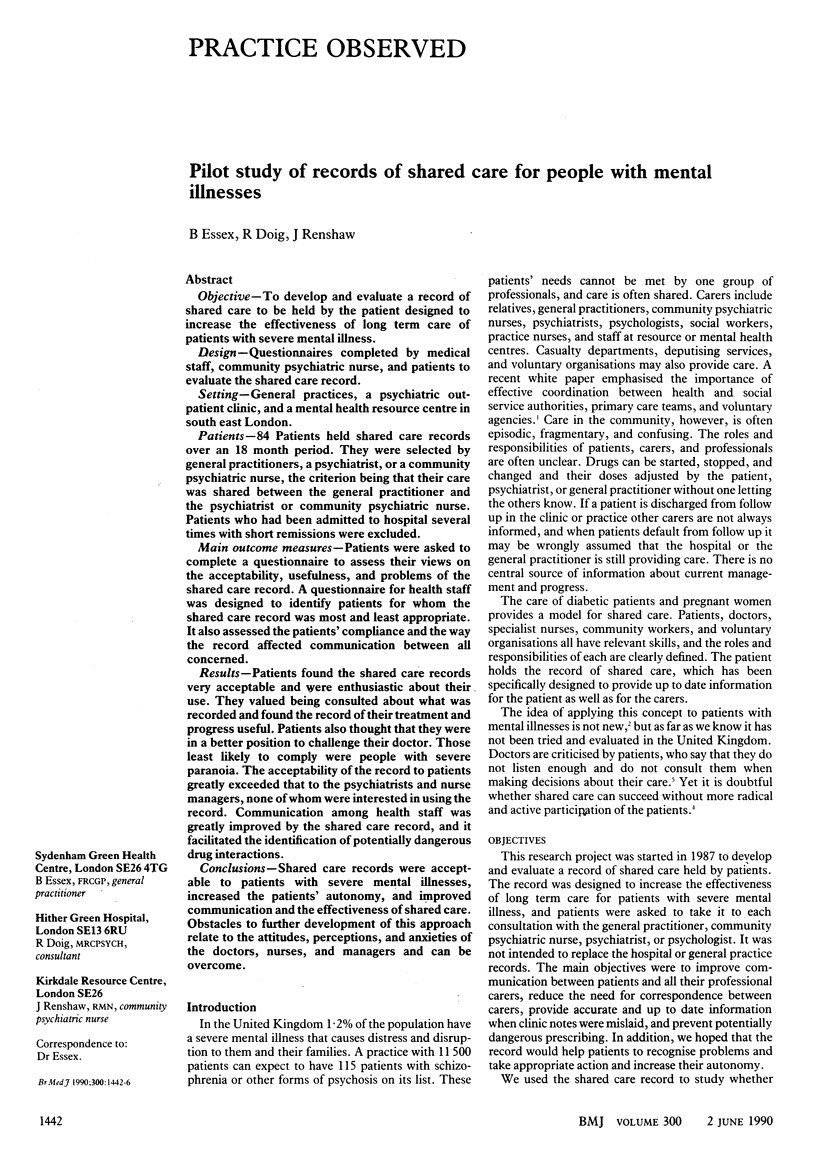
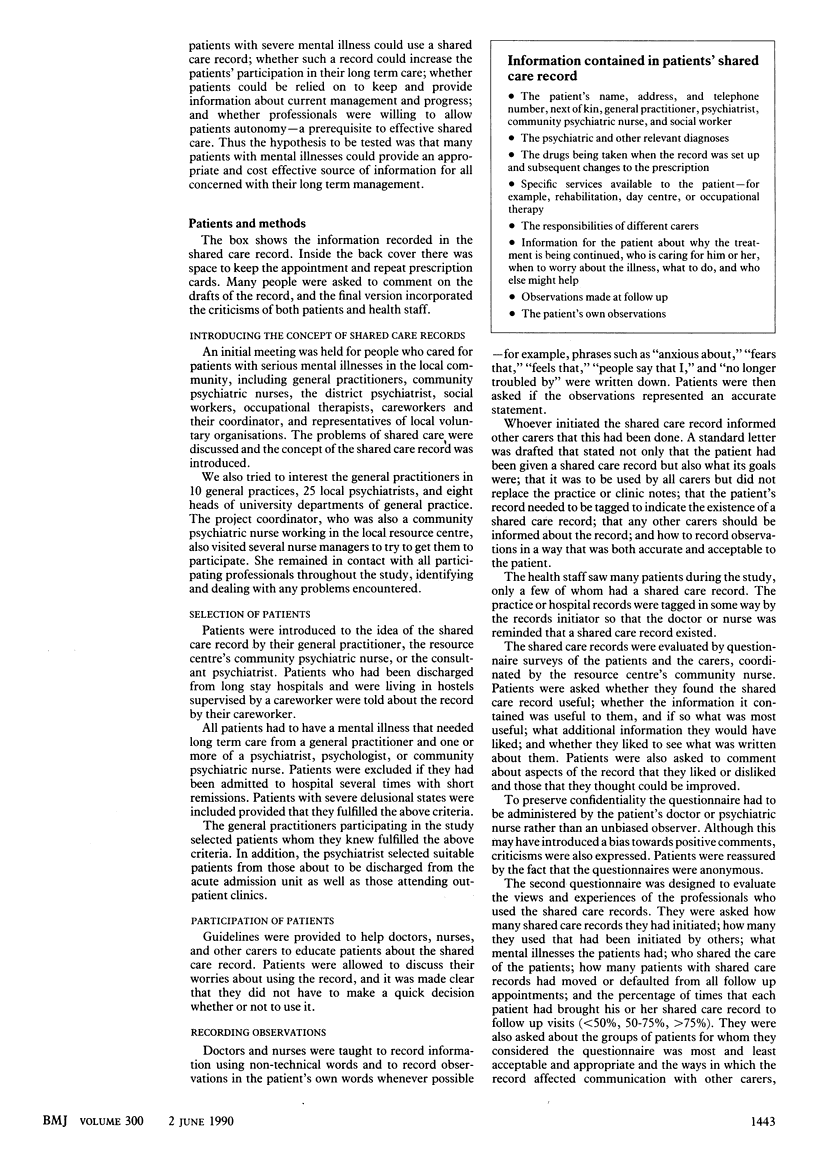
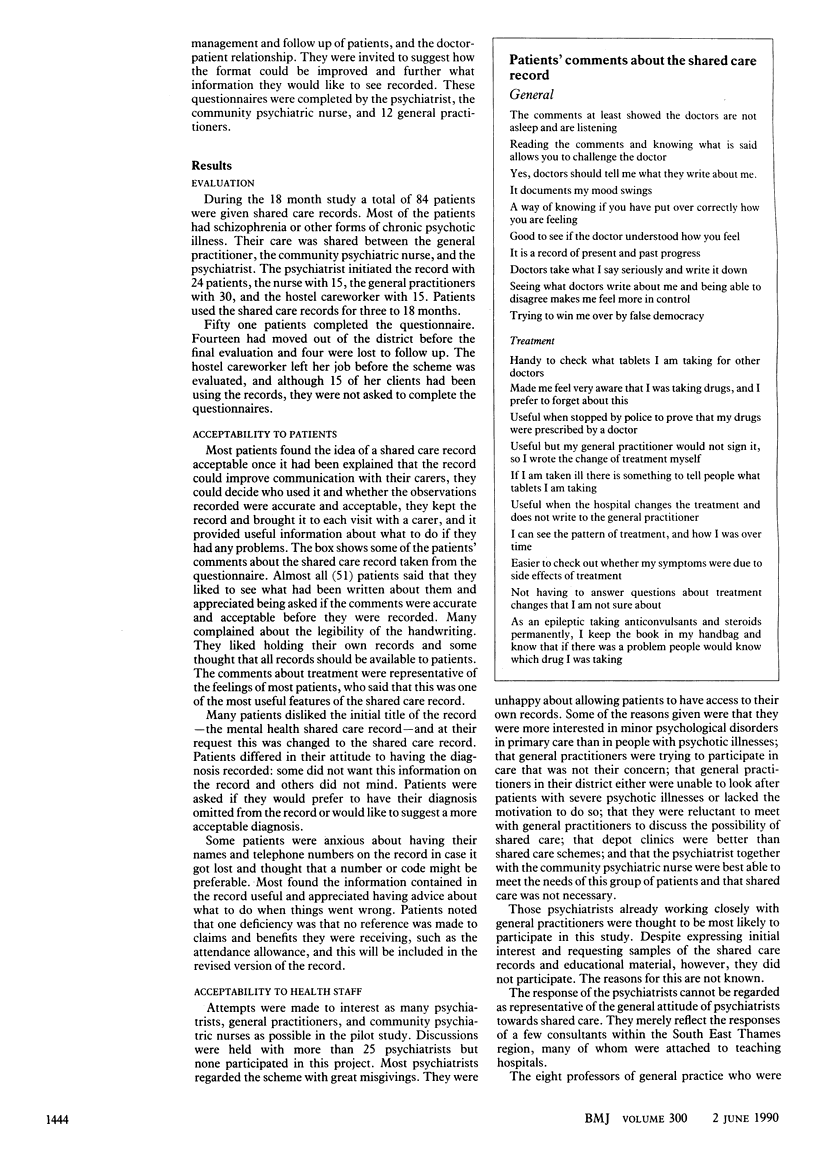
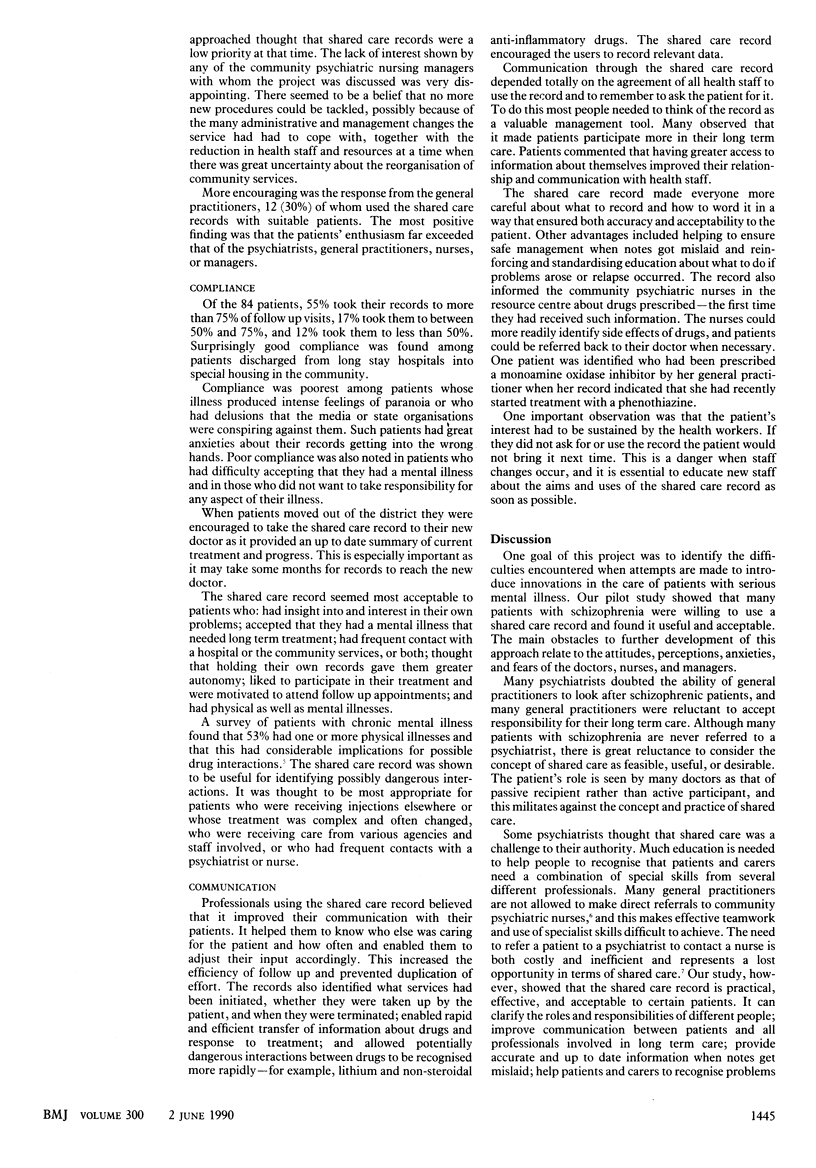
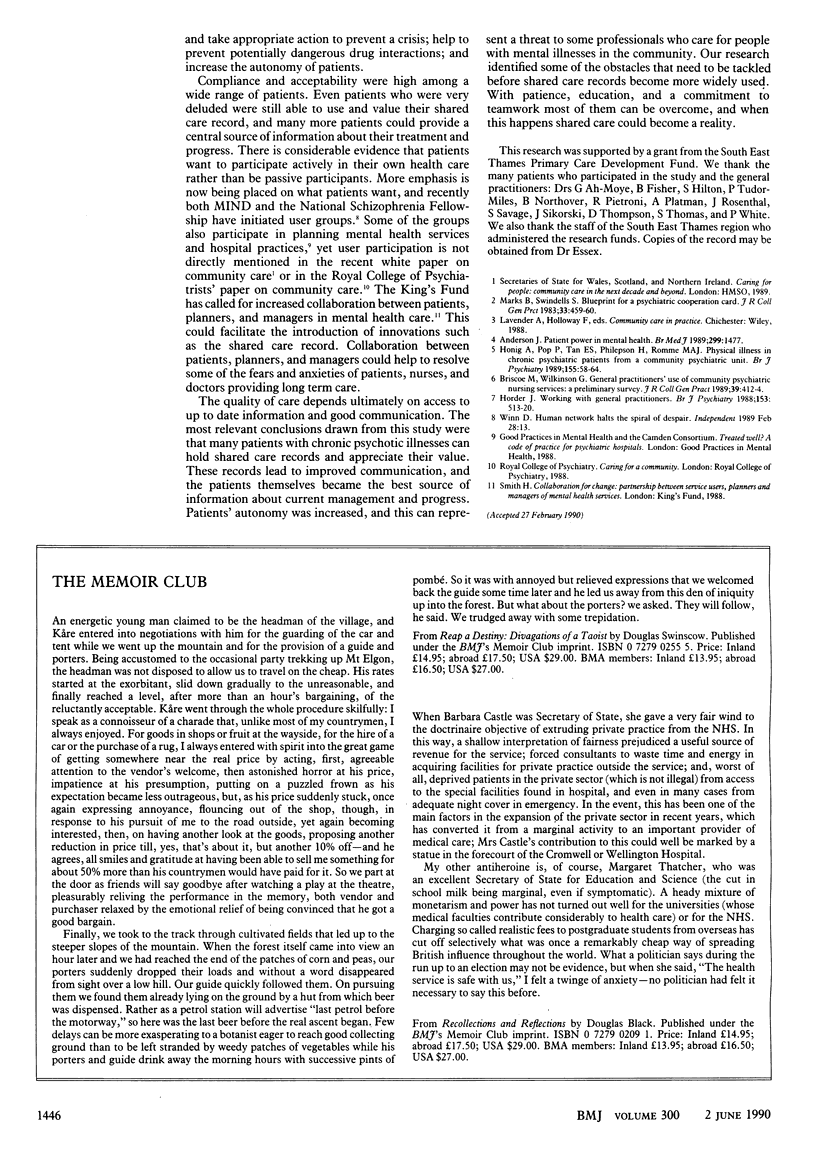
Selected References
These references are in PubMed. This may not be the complete list of references from this article.
- Anderson J. Patient power in mental health. BMJ. 1989 Dec 16;299(6714):1477–1478. doi: 10.1136/bmj.299.6714.1477. [DOI] [PMC free article] [PubMed] [Google Scholar]
- Briscoe M., Wilkinson G. General practitioners' use of community psychiatric nursing services: a preliminary survey. J R Coll Gen Pract. 1989 Oct;39(327):412–414. [PMC free article] [PubMed] [Google Scholar]
- Honig A., Pop P., Tan E. S., Philipsen H., Romme M. A. Physical illness in chronic psychiatric patients from a community psychiatric unit. The implications for daily practice. Br J Psychiatry. 1989 Jul;155:58–64. doi: 10.1192/bjp.155.1.58. [DOI] [PubMed] [Google Scholar]



